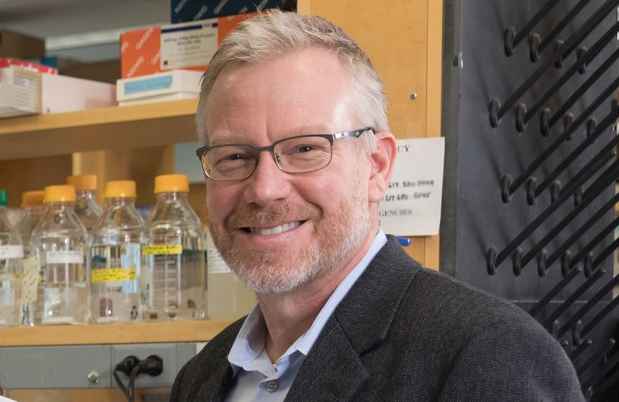
Caroline B. Palavicino-Maggio, PhD
Director, Neurobiological Mechanisms of Aggression Laboratory
- Assistant Professor of Psychiatry
Biography
Caroline B. Palavicino-Maggio, PhD, is a basic neuroscientist who studies the fundamental neurological basis of social behavior using the fruit fly model system’s genetic approaches. In 2016, she joined the laboratory of Dr. Ed Kravitz in the Department of Neurobiology at Harvard Medical School. Her post-doctoral research was centered on identifying the neurons involved for female aggression as well as the evolutionary element of behavior.
Dr. Palavicino-Maggio has been selected for many prestigious awards from the Rutgers Society Foundation, New York Academy of Sciences, Alfred P. Sloan Foundation Pre-Doctoral Fellowship, NIMH Independent Dissertation Grant, and NIGMS K99/R00 MOSAIC Pathway to Independence. In 2020, she was acknowledged by Cell Press in their “100 most Inspiring Hispanic/Latinx scientists in America” list. Dr. Palavicino-Maggio is a strong advocate for social justice and encouraging young people from marginalized groups to pursue STEM careers.
Dr. Palavicino-Maggio’s Neurobiological Mechanisms of Aggression Laboratory, founded in 2022, uses Drosophila transgenics, transcriptome analysis, and high-throughput automated behavioral measurements to study social behavior and to identify promising circuits, cells, and genes that govern male/female aggression and how it may be perturbed in psychiatric and neurodegenerative diseases.
By defining basic mechanisms and neural pathways of male/female aggression, Dr. Palavicino-Maggio and her staff aim to elucidate novel principles of brain function through mechanistic models that have not been previously explored and aid in developing new therapeutic targets that address disease-related behavioral deficits.
Dr. Palavicino-Maggio’s early work focused on the role of sugar transporters and dopamine receptors in antipsychotic-induced weight gain. Antipsychotic medications routinely used for the treatment of acute aggression include dopamine antagonists that target dopamine 2 receptors and several other G-protein coupled receptors. While these drugs are effective, they are often accompanied by severe weight gain, leading to noncompliance and resulting in psychotic relapse.
Dr. Palavicino-Maggio identified a novel role, whereby histamine receptors in the gut are altering fructose absorption and lipid metabolism, resulting in antipsychotic-induced weight gain.
While colleagues had been studying male aggression for many years, during her post-doctoral training, Dr. Palavicino-Maggio advocated for the study in females and focused on decoding the female aggression neural circuit. She went on to exploring a major unanswered question in the field: How is female aggression coded in the Drosophila brain?
Dr. Palavicino-Maggio and colleagues performed extensive genetic screens and discovered that out of the 150,000 brain cells found in the female Drosophila brain, a pair of pC1alpha neurons were responsible for female aggression. Immunostaining and confocal microscopy revealed that these neurons are cholinergic, female-specific, and expressed in female isoforms.
Her findings established that aggression is sexually dimorphic, and distinct sets of neurons are dedicated to female but not male aggression behaviors in Drosophila. In other words, aggression is wired differently in males than in females—this is a new paradigm in the field.
- Kimberly Martinez, Research Assistant
- Ivan J. Santiago, PhD, Research Fellow
- Sabina Berretta, MD, McLean Hospital
- Bill Carlezon, PhD, McLean Hospital
- Benjamin de Bivort, PhD, Harvard University
- Kerry J. Ressler, MD, PhD, McLean Hospital
- Rachel Wilson, PhD, Harvard Medical School
Palavicino-Maggio CB, Chan YB, McKellar C, Kravitz EA. A small number of cholinergic neurons mediate hyperaggression in female Drosophila. PNAS. 2019;116(34):17029-17038.
Sengupta S, Chan YB, Palavicino-Maggio CB, Kravitz EA. (2022) GABA transmission from mAL interneurons regulates aggression in Drosophila males. PNAS. 2022;119(5):e2117101119.
Palavicino-Maggio CB, Sengupta S. The neuromodulatory basis of aggression: lessons from the humble fruit fly. Review. Frontiers in Behavioral Neuroscience. 2022.
Education & Training
- 2002 BS in Biopsychology, Rider College
- 2013 PhD in Neuropharmacology and Neurophysiology, Rutgers University, New Jersey Medical School
- 2016-2022 Post-Doctoral Research Fellow, Harvard Medical School



